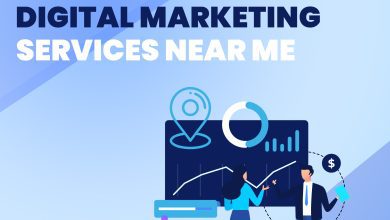Seo Tips For Your Ecommerce Business
Boost Your Online Presence and Drive Sales

In the highly competitive world of Ecommerce, having a strong online presence is crucial for success. Search Engine Optimization (SEO) plays a pivotal role in driving organic traffic to your Ecommerce website and improving your visibility on search engine result pages (SERPs). To help your Ecommerce business thrive, here are some essential SEO tips to implement:
1. Keyword Research
Conduct thorough keyword research to identify the terms and phrases potential customers are using to search for products similar to yours. Utilize tools like Google Keyword Planner or SEMrush to uncover relevant keywords with a balance of search volume and competition.
2. Optimize Product Pages
Each product page should have a unique and descriptive title tag that includes relevant keywords. Craft compelling meta descriptions that encourage clicks by highlighting the value your products offer.
3. High-Quality Product Images
Use high-resolution images that showcase your products from multiple angles. Optimize these images by compressing them without compromising quality, as faster page load times positively impact SEO.
4. Mobile-Friendly Design
Ensure your Ecommerce website is responsive and mobile-friendly. Google considers mobile-friendliness as a ranking factor, and a seamless mobile experience enhances user engagement.
5. Create Engaging Content
Develop valuable and informative content related to your products. This could include how-to guides, product reviews, and blog posts that address customer pain points. Engaging content not only attracts visitors but also encourages them to spend more time on your site.
6. Internal Linking
Incorporate internal links throughout your website to guide visitors to related products and pages. Internal linking improves site navigation and helps search engines understand the structure of your site.
7. User Experience and Site Speed
User experience is paramount. Ensure your website is easy to navigate, with clear calls-to-action and a user-friendly checkout process. Additionally, optimize your site’s loading speed for both desktop and mobile users.
8. Secure Website with HTTPS
A secure website (HTTPS) is favored by search engines and builds trust with customers. Install an SSL certificate to encrypt data transmission between your site and users’ browsers.
9. Schema Markup
Implement schema markup to provide search engines with additional information about your products. This can lead to rich snippets in search results, which can improve click-through rates.
10. Optimize for Local Search
If you have a physical store, optimize your website for local search. Create a Google My Business listing and ensure your business’s NAP (Name, Address, Phone Number) information is consistent across all online platforms.
11. Social Media Integration
Integrate social sharing buttons on your product pages to encourage customers to share your products on their social media profiles. Social signals can indirectly impact your SEO efforts.
12. Regularly Update Content
Consistently update your website with fresh content, whether it’s new product listings, blog posts, or seasonal promotions. Regular updates signal to search engines that your site is active and relevant.
13. Monitor Analytics
Regularly monitor your website’s performance using tools like Google Analytics and Search Console. Analyze data to identify trends, track conversions, and adjust your SEO strategy accordingly.
14. Optimize for Voice Search
As voice search becomes more prevalent, optimize your content for voice queries by using natural language and long-tail keywords.
15. Build High-Quality Backlinks
Earn high-quality backlinks from reputable sources in your industry. Backlinks from authoritative websites can significantly boost your website’s credibility and search engine rankings.
Implementing these SEO tips can help your Ecommerce business stand out in the crowded online marketplace. By optimizing your website for search engines and delivering a seamless user experience, you’ll not only improve your online visibility but also drive more traffic and conversions, ultimately leading to business growth and success.
Choosing the Best Ecommerce Agency For Your Ecommerce Business
In the dynamic world of Ecommerce, partnering with the right agency can make all the difference in your business’s success. An experienced Ecommerce agency can provide the expertise and support needed to drive your online store to new heights. Here’s a comprehensive guide to help you choose the best Ecommerce agency for your specific needs.
1. Assess Your Ecommerce Business Needs
Before you start looking for an agency, it’s crucial to understand your business’s goals, challenges, and requirements. Are you launching a new Ecommerce venture or seeking to optimize an existing one? Identify your pain points and areas where external expertise is needed.
2. Experience and Portfolio
Review the agency’s track record and portfolio. Look for agencies that have worked with businesses similar to yours. Examine their portfolio to see if they have successfully executed projects that align with your goals.
3. Technological Expertise
Ecommerce platforms and technologies are constantly evolving. Ensure that the agency you choose is well-versed in the platforms you plan to use. They should have the technical expertise to handle integrations, customizations, and optimizations.
4. Understanding of Your Industry
Select an agency that understands the nuances of your industry. Familiarity with your target audience, market trends, and competitive landscape will enable them to create strategies tailored to your unique needs.
5. Strategic Approach
A reliable Ecommerce agency should have a strategic approach to their work. They should be able to outline a clear plan for achieving your goals, including how they will drive traffic, enhance user experience, and boost conversions.
6. Communication and Collaboration
Effective communication is essential for a successful partnership. Choose an agency that maintains open lines of communication, providing regular updates and seeking your input throughout the project. A collaborative approach ensures that your vision aligns with their strategies.
7. Scalability
Consider the scalability of the agency’s solutions. As your Ecommerce business grows, you’ll need a partner who can scale their strategies and resources accordingly.
8. Client Testimonials and Reviews
Look for client testimonials and reviews on the agency’s website and other platforms. This firsthand feedback can offer insights into their strengths, areas of improvement, and overall client satisfaction.
9. Customization and Flexibility
Avoid one-size-fits-all solutions. The best Ecommerce agencies understand that each business is unique and requires tailored strategies. Look for agencies that prioritize customization and flexibility.
10. Results-Oriented Approach
Inquire about the agency’s approach to measuring success. They should be able to define key performance indicators (KPIs) and provide strategies for achieving tangible results, such as increased traffic, higher conversions, and improved ROI.
11. Transparent Pricing
Transparency in pricing is crucial. The agency should provide a clear breakdown of their fees and services. Be cautious of agencies that provide vague or unclear pricing structures.
12. Long-Term Partnership
Building a successful Ecommerce business is an ongoing endeavor. Choose an agency that is committed to a long-term partnership, offering continuous support, updates, and optimization.
13. Innovative Thinking
Ecommerce is an ever-evolving field. Look for an agency that embraces innovation and stays updated with the latest trends, technologies, and strategies to keep your business ahead of the curve.
14. References and Recommendations
Ask the agency for references from their past and current clients. Speaking directly to these clients can provide deeper insights into the agency’s work ethic, reliability, and overall performance.
15. Assessing Portfolio and Case Studies
Review the portfolios and case studies of the agencies on your list. This will give you insights into their past projects, the industries they’ve worked with, and the level of creativity and innovation they bring to the table.
16. Cultural Fit
Lastly, consider the cultural fit between your business and the agency. A strong alignment in values, work ethic, and communication styles can contribute to a more harmonious partnership.
Making the Final Decision
After careful evaluation of all aspects, it’s time to make a well-informed decision. Choose the ecommerce agency that ticks all the boxes and aligns best with your business goals.
Conclusion
It’s important to keep in mind that selecting the best Ecommerce agency has a big impact on how successful your online business becomes. This guide is your companion, guiding you through the entire process one step at a time. By following its guidance and putting in the effort to research different agencies, you increase your chances of discovering a partner that goes beyond just assisting you. This partner will genuinely contribute to your triumph in the realm of online sales, ensuring that your business thrives and prospers in this competitive landscape.





